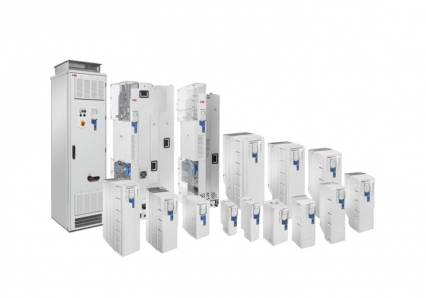ABB's ACQ580 frequency drives with Anti-cavitation function

ABB's ACQ580 frequency drives with Anti-cavitation function
Cavitation is the formation of bubbles or cavities in a liquid. Put another way, it is when the liquid begins to convert to steam. At sea level, water goes from liquid to steam at 100°C, however, as altitude increases, air pressure decreases and the point of conversion to steam is reduced. When the pressure approaches vacuum, the evaporation point is close to room temperature.
With centrifugal pumps, if the inlet flow is insufficient relative to the required outlet flow, a low pressure zone is formed on the back side of the pump impeller blades and the liquid may begin to cavitate. When the liquid and the steam reach the impeller outlet, the pressure increases and the steam bubbles collapse back into liquid, sending shock waves into the pump.
It is this sudden contraction of the bubbles and the resulting shock waves that create the audible noise (like small pebbles moving in the liquid) as well as the vibrations in the pump that accompany cavitation. Although these shock waves dissipate quickly they cause serious damage to the impeller. Cavitation not only reduces pump efficiency due to impaired impeller integrity, but also leads to bearing and seal failures.
ACQ580 frequency drives have a built-in function to avoid cavitation without the use of external sensors. The algorithm is based on the cavitation curve that is used as a reference for normal operation. The torque ripple is compared to this curve and, when cavitation is indicated, the pump speed is reduced in set steps until the cavitation is eliminated or the minimum speed is reached. When the inlet pressure is restored, the frequency accordingly increases the speed to the set point.
Explanatory video: https://www.youtube.com/watch?v=ubwTCHRXryM
ACQ580 series catalogue: ACQ580 catalog







